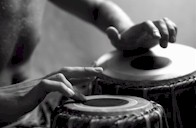
Religions are not only traditionally the first organized way in which we humans have learned to apprehend the nature of the world and our existence in it, they still continue to answer questions whose profundity makes science throw up its hands. While it is not particularly surprising that our religions have originated in the context of particular tribes, it can be eye-opening to consider the degree to which these associations have persisted into modern times.
Of today’s major religions, Judaism is probably the most overtly tribal. Even if you don’t know much about the faith, let alone practice it, if your mother was Jewish, you are, too. This indelibly marks you as one of a “chosen people” for whom ancient ties to a particular geographic area are still of consuming significance.
Likewise, “Islamic” rules governing things like women’s dress and behavior often turn out to be based not on the writings of Mohammed, but simply on Bedouin tribal customs. It is also significant that Muslims are predominantly clustered within a single contiguous band of arid North African and Eurasion land--and that within this area, geographic location is the primary determinant of which of the two major varieties of the faith people adhere to, Sunni or Shi’ite.
As for Christianity, it remains overwhelmingly a religion of Europe and its former colonies. As a practical matter, even its most historically liberating event, the Reformation, did not result so much in people making their own individual choices as in simply segregating believers by geographic region, with Northwestern Europe becoming Protestant, and Southern and Eastern Europe remaining Catholic or Eastern Orthodox.



